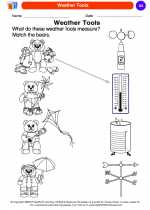Organelles
Organelles are specialized structures within a cell that perform specific functions. Each organelle has a unique structure and function that contributes to the overall functioning of the cell.
Nucleus
The nucleus is the control center of the cell, containing the cell's genetic material and governing the cell's activities.
Endoplasmic Reticulum (ER)
The ER is involved in the production, processing, and transportation of proteins and lipids in the cell.
Golgi Apparatus
The Golgi apparatus processes and packages proteins and lipids produced by the ER for transportation to other parts of the cell or for secretion.
Mitochondria
Mitochondria are the powerhouses of the cell, producing energy through the process of cellular respiration.
Chloroplasts (in plant cells)
Chloroplasts are unique to plant cells and are the sites of photosynthesis, where light energy is converted into chemical energy in the form of glucose.
Lysosomes
Lysosomes contain enzymes that break down waste materials and cellular debris, playing a key role in cell recycling and waste management.
Vacuoles (in plant cells)
Vacuoles are storage organelles that store water, nutrients, and waste products, and provide structural support in plant cells.
Cytoskeleton
The cytoskeleton provides structural support to the cell and is involved in cell movement and transport of materials within the cell.
Study Guide
- What is the function of the nucleus?
- Describe the role of the endoplasmic reticulum in the cell.
- How does the Golgi apparatus contribute to cellular function?
- What is the main function of mitochondria?
- What is the role of chloroplasts in plant cells?
- Explain the function of lysosomes in the cell.
- What is the purpose of vacuoles in plant cells?
- Describe the role of the cytoskeleton in the cell.
[Organelles] Related Worksheets and Study Guides:
.◂Science Worksheets and Study Guides Kindergarten. Weather

 Coloring Worksheet
Coloring Worksheet
 Coloring Worksheet
Coloring Worksheet
 Coloring Worksheet
Coloring Worksheet
 Coloring Worksheet
Coloring Worksheet
 Coloring Worksheet
Coloring Worksheet
 Coloring Worksheet
Coloring Worksheet
 Coloring Worksheet
Coloring Worksheet
 Coloring Worksheet
Coloring Worksheet
 Coloring Worksheet
Coloring Worksheet
 Coloring Worksheet
Coloring Worksheet
 Coloring Worksheet
Coloring Worksheet
 Coloring Worksheet
Coloring Worksheet
 Coloring Worksheet
Coloring Worksheet
 Coloring Worksheet
Coloring Worksheet
 Coloring Worksheet
Coloring Worksheet
 Coloring Worksheet
Coloring Worksheet
 Coloring Worksheet
Coloring Worksheet
 Coloring Worksheet
Coloring Worksheet
 Coloring Worksheet
Coloring Worksheet
